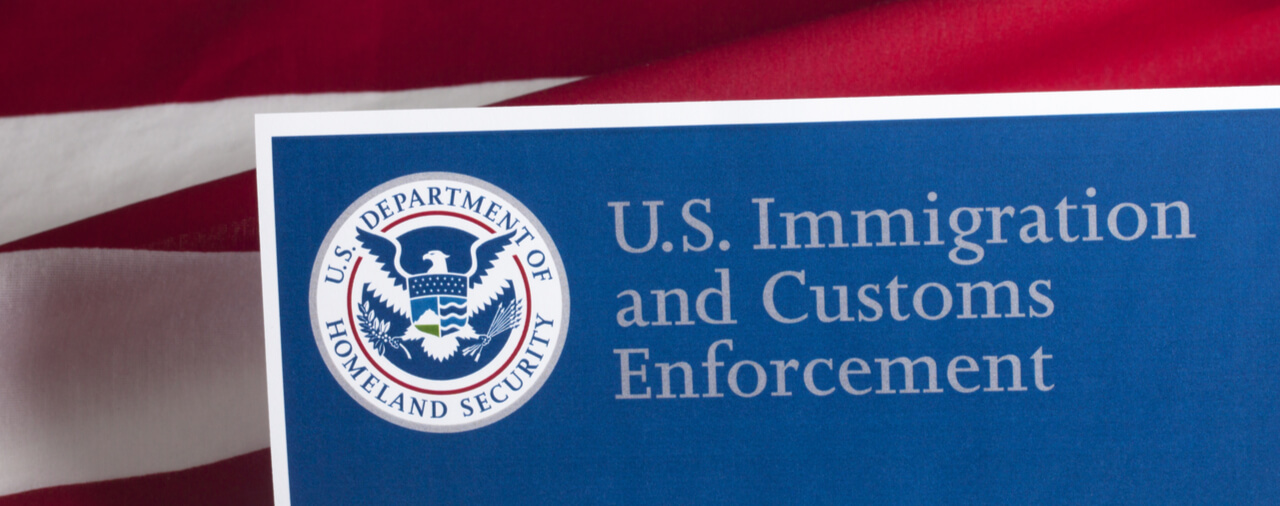On May 5, 2019, President Donald Trump announced that he would nominate Mark Morgan to be the next Director of the U.S. Immigration and Customs Enforcement (ICE) [see blog]. In light of the news, it is worth examining an interview Morgan gave to The Epoch Times on April 24, 2019, just under two weeks before President Trump’s announcement [link].1 In this article, we will discuss the key points from the interview, which is well-worth reading in its entirety.
The following are some of the noteworthy statements from Morgan in his interview:
Morgan described the current situation at the border as a “crisis.”
Morgan supported President Trump’s “Migrant Protection Protocol,” which requires certain individuals who seek asylum at a port of entry or after crossing the border illegally to wait in Mexico while their asylum applications are adjudicated. Morgan however agreed with the interviewer that if the Protocol is not applied across the entirety of the Southwest border, it will incentivize migrants to sneak across the border rather than apply for asylum at a port of entry. (The Migrant Protection Protocol is currently the subject of ongoing litigation.)
Morgan blamed the Flores Settlement Agreement (limits the amount of time that children can be kept in detention) and the Trafficking Victims Protection Reauthorization Act for incentivizing adults to bring children with them when crossing the border in order to secure their release from immigration detention. He added that this incentivizes fraud and the exploitation of children.
Morgan agreed with the interviewer that the uptick in border crossings from Guatemala, Honduras, and El Salvador is not attributable to increasing violence. He stated that the violence in those countries “ebbs and flows” while the number of crossings from those countries “continue[] to skyrocket.” He blamed Congress for its inability to address loopholes in the immigration system for the increasing number of crossings at the border from those Central American countries. He suggested that Congress’ inaction is “based on their political agenda and their ideology.”
Morgan agreed that many migrants are being coached on what to say to pass credible fear interviews. Morgan stated that Mexican drug cartels “own” the Southwest border and that “they’ll take the caravans, no matter how big or small, and they’ll direct them to certain areas, so the Border Patrol can be engaged, and they’ll sneak criminal aliens in and bad things in.” However, Morgan stated that the migrant caravans themselves are not actually started by cartels, but by “nongovernmental agencies and other nonprofit organizations…”
Morgan stated that despite the uptick in crossings of actual family units and unaccompanied alien children, many of the people crossing are “not all good.” For example, “[t]his year already, Border Patrol has apprehended as many gang members so far in the first six months [as] they did all of last year.” He added that the number of apprehensions does not tell the full story because “the border is still 60 percent wide open…” In addition to noting that the border does not have enough infrastructure, technology, and personnel, Morgan stated that “anywhere from 25 to 40 percent of Border Patrol resources are being pulled away and dedicated to the humanitarian side…” which allows cartels “[t]o bring drugs, contraband, and bad people in.” Morgan stated that when he was Border Patrol Chief during the final months of the Obama Administration, “about 15 percent of the Border Patrol agent resources were pulled off the line to do humanitarian tasks…”
Morgan stated that enforcement on the interior is a problem as well. He noted that deaths of U.S. citizens at the hands of “illegal aliens that had ICE detainers … that should not have been here … could have been prevented.”
Morgan stated that we should stop thinking that Mexico, Guatemala, Honduras, and El Salvador, and Congress are going to partner with the Administration in any short-term fixes to the crisis. He noted that the United States has given hundreds of millions of dollars to Guatemala, Honduras, and El Salvador and received no benefit in reducing the number of border crossings in return. He stated that Mexico has also not been a part of the solution despite repeated attempts by the U.S. government to work with them. He added that Congress has failed as well.
Morgan stated that the Department of Homeland Security (DHS) should tighten the regulations on credible fear due to the overwhelming majority of claims that are ultimately found to be unsubstantiated.
Morgan stated that DHS needs to pass regulations to allow ICE to detain family units while they are going through the immigration process. He called for the re-imposition of “port courts” to process claims at the border quickly and remove those with no viable claims for relief or protection “immediately.”
Morgan stated that ICE must tighten interior enforcement to lessen the incentive for people from Guatemala, Honduras, and El Salvador to come to the United States. He restated his position that people from those countries come here primarily because of economic incentives or family reunification, not to escape conditions in their own countries.
Morgan complained about “judicial activism” blocking many of President Trump’s immigration enforcement initiatives. He stated that he would advise President Trump to litigate many of his policies, such as the Migrant Protection Protocols, all the way to the Supreme Court.
Morgan took the position that the crisis at the border is worse than it was in the 90s despite lower overall numbers of crossings because of demographics. In the 1990s, the vast majority of border crossers were men who could be deported expeditiously, sometimes “being caught and sent back two to three times on the same day.” Due to current court orders and policies, family units and unaccompanied minors cannot be removed expeditiously, even if they ultimately have no viable claim for protection or relief. He added that many of the border crossers who are denied relief and protection and issued final orders of removal will remain in the United States and not comply with their final orders of removal.
Most of the interview with Morgan focused on border security. If he is confirmed as Director of ICE, his focus will be primarily on interior enforcement rather than border security. The interview does however highlight that Morgan sees interior enforcement as being intertwined with border security. For example, Morgan suggested that the prospect of remaining in the United States with better economic prospects is the primary cross of the large numbers of border crosses from Guatemala, Honduras, and El Salvador, rather than violence in those countries. Thus, he sees interior enforcement as a way to deter many individuals from trying to come to the United States in the first place. Morgan also advocates abrogating the Flores Settlement Agreement to make it easier to detain family units with children pending the adjudication of their immigration cases.
Although Morgan served briefly in the Obama Administration, he has consistently expressed support for many of President Trump’s efforts to tighten immigration enforcement. In the interview, he called for numerous regulatory changes to increase immigration enforcement as well as the litigation of ongoing district court injunctions against certain immigration policies all the way up to the Supreme Court. We can only presume that Morgan’s support for these policies is why President Trump has decided to nominate him for the position of ICE Director.
We will update the website with more information about the Morgan nomination if and when it becomes available. To learn more about some of the issues discussed in this article, please see our website’s sections on asylum and refugee protection [see category], removal and deportation defense [see category], and immigration detention [see category].





